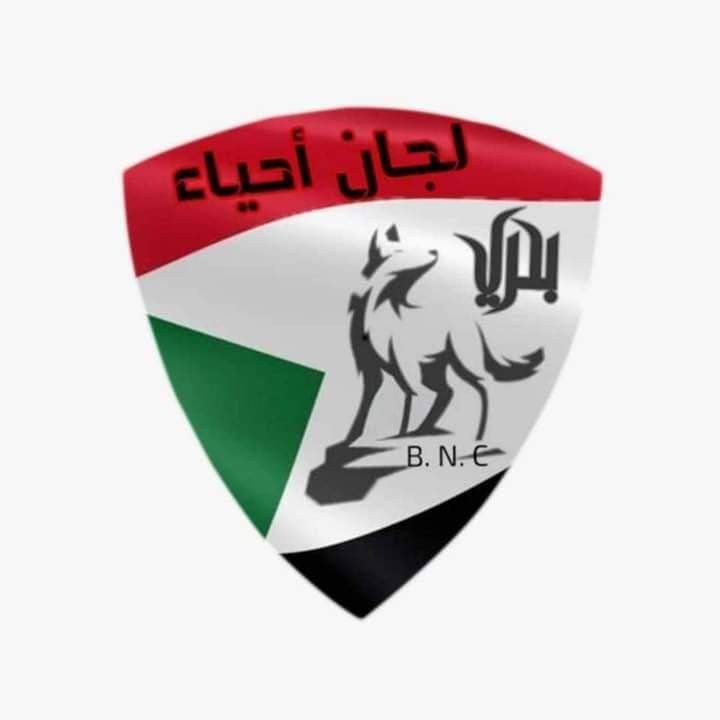
Emergency Maritime Room Report on the General Situation in the City
Moatinoon
For 100 consecutive days, the citizens of the city of Bahri have been living in highly complex humanitarian and security conditions due to ongoing clashes and indiscriminate shelling.
In recent times, the intensity of conflicts and artillery shelling has escalated in areas like Halafaia, Al-Shaabia, Shambat Al-Hijra, and the outskirts of Bahri, with the most severe incidents occurring in Khawjlab. These clashes resulted in the death of 6 people from Khawjlab due to indiscriminate shelling and led to the displacement of most of the neighborhoods residents.
Several cases of violations and rapes against women and girls under the age of 18 have been documented, some of whom received necessary medical care in the early hours, while others were unable to access medical treatment due to the security situation and the hospitals being out of service in Bahri. Furthermore, multiple cases of abduction by the Rapid Support Forces have been reported in Halafaia, all involving individuals under the age of 18.
Acts of theft and looting continue to plague all neighborhoods in the city. The majority of neighborhoods are facing continuous water shortages. After citizens of Bahri launched an appeal concerning the water outage, which lasted for more than three months, a maintenance team coordinated by the Red Cross, accompanied by both conflicting parties, visited the water station on Thursday, July 20, to assess the damages and identify the stations needs for it to resume functioning. However, clashes around the station did not cease during the inspection today.
Though the report from technicians is yet to be released, initial observations indicate significant damage to the station due to the clashes. Repairing the damages and addressing the power supply problem for the station, located in the Bahri Military Area, will require time and is exceedingly challenging given the ongoing conflicts.
We reiterate our appeal to both parties to cease fire for the maintenance of the Bahri water station and to address the suffering of the citizens.
On another note, some areas continue to experience frequent electricity outages despite the efforts of emergency committees and electrical engineers to restore power to the affected areas. Clashes between the parties have led to the recurrence of power outages in several neighborhoods.
Additionally, all markets and commercial shops remain closed, putting the citizens of Bahri at risk of essential food shortages and preventing them from accessing hospitals, health centers, and vital medications.
We call on all parties to cease the war and prioritize the interests of the citizens who are suffering. We also urge the establishment of safe corridors away from hospitals and citizens facilities.
Attached is an interactive map illustrating the humanitarian, health, and security situation in Bahri city up until the time of writing this report, with continuous updates on emergencies. The interactive map highlights Bahri city as one of the most affected by the war. We appeal to all local and international humanitarian organizations and media outlets to provide assistance in alleviating the dire situation of Bahri citys citizens.
Summary of the Water Situation inside the City:
There are 3 water stations in Bahri:
Bahri Water Station.
Halafaia Water Station (fed from Bahri Water Station).
Tamanieat Water Station.
The Halafaia and Bahri water stations have been out of service for 100 days (up until the time of writing this report), covering 50% of the city. Approximately 9.1% of Bahris neighborhoods have alternative means to access water, such as tankers, well water, or fetching water from the Nile. However, these water sources are not suitable for drinking. About 40.9% of Bahris neighborhoods have no alternative means to access water.
Electricity:
65.9% of Bahris neighborhoods have no electricity, including areas like Amlak, Hilla Hamad, Al-Sababi, Hilla Khawjli, Al-Dinagla, Al-Diyyum, Al-Khitamiyah, Al-Mughtaribin, Al-Safia, Al-Mazad, and Al-Hijra, for over a month and a half without electricity. Other areas like Al-Shaabia, Shambat Al-Hilla, Shambat Extension, Halafaia, Al-Samarab, Al-Durushab, and Al-Aziraqab have been without electricity for over 10 days, while temperatures rise and water supply remains scarce.
43.1% of Bahris neighborhoods have relatively stable electricity supply.
Summary of the Health Situation in Bahri:
Hospitals and health centers still in service in the city:
International Hospital.
Friendship Villages Hospital.
Among a total of 31 hospitals and health centers in Bahri city.
The percentage of hospitals still in service is 6.5%.
There is no nearby hospital serving the northern and eastern areas of Bahri.
The distance between the International Hospital and Friendship Villages Hospital is 60 kilometers.
Transporting patients to hospitals is difficult due to the lack of vehicles and fuel, as well as the absence of safe routes.
Pharmacies in neighborhoods are facing difficulties, and there is a shortage of medications, especially for chronic diseases.




